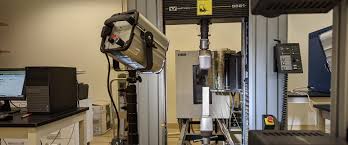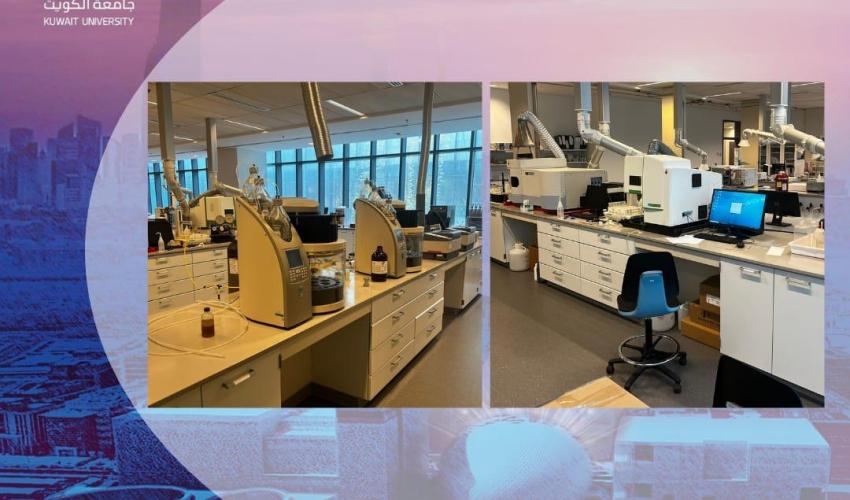Kuwait, known for its energy-driven economy, has been steadily diversifying its growth strategies by investing in advanced scientific research. One of the most promising areas where this shift is clearly visible is nanotechnology. The country’s universities are at the forefront of this transformation, channeling their efforts into exploring how nanoscience can bring powerful advancements in medicine, energy, environment, and materials science. This progressive movement not only benefits academic institutions but also supports Kuwait’s vision of becoming a knowledge-based economy.
Nanotechnology research in Kuwait’s universities is not just an academic pursuit; it is a national mission. By equipping young researchers with the tools and knowledge to experiment with materials at the atomic and molecular level, these institutions are shaping a future filled with opportunities, resilience, and sustainability.
The Rise of Nanotechnology in Kuwait’s Academic Landscape
Nanotechnology emerged in Kuwait’s research scene as a response to global technological trends and local economic needs. While oil has been the backbone of Kuwait’s development for decades, the volatility of global energy markets urged the nation to look toward innovation. Universities recognized nanotechnology as a field with enormous potential to enhance industries, create new economic avenues, and improve quality of life.
Universities such as Kuwait University and specialized research centers began establishing laboratories dedicated to nanoscience, signaling a serious investment in this area. Students and professors collaborated with international experts, paving the way for global recognition of Kuwait’s academic contributions. This rise reflects a deeper intention: Kuwait is no longer satisfied with being a consumer of technology. Instead, it is positioning itself as a contributor to world-class innovation.
Medicine and Healthcare Breakthroughs
Among the most inspiring impacts of nanotechnology research in Kuwait’s universities is its contribution to healthcare. Medical researchers are experimenting with nanoparticles to create targeted drug delivery systems. Unlike traditional methods that spread medication throughout the entire body, nanomedicine focuses on delivering treatment to specific cells, such as cancerous ones. This improves effectiveness, reduces side effects, and raises survival chances.
Kuwaiti researchers are also studying nanomaterials for diagnostic purposes. Advanced imaging techniques using nanoparticles can help doctors detect diseases earlier, sometimes even before symptoms become visible. For a nation that prioritizes healthcare and well-being, these breakthroughs represent a significant step forward. Moreover, students involved in these projects gain hands-on experience in technologies that will define the future of medicine.

Environmental Protection and Sustainability
Kuwait faces pressing environmental challenges, including water scarcity, desertification, and pollution caused by heavy industrialization. Nanotechnology has opened the door to innovative solutions for these issues. Researchers in Kuwaiti universities are studying nanomaterials that can purify water by removing harmful contaminants, making clean drinking water more accessible and sustainable.
Nanotechnology is also being applied to environmental monitoring. Tiny sensors at the nanoscale can detect pollutants in the air or water with incredible accuracy, allowing for faster and more effective responses. In a desert climate where every drop of water and every breath of clean air matters, these advancements are crucial. They show that science can be both innovative and compassionate, addressing human needs while respecting the environment.
Advancing Kuwait’s Energy Sector
Energy research is another area where nanotechnology plays a pivotal role. Although oil will remain part of Kuwait’s economy, universities are actively working on nanotechnology applications that make energy use cleaner and more efficient. For example, researchers are exploring nanomaterials that can enhance solar cells, increasing their ability to capture sunlight and convert it into electricity.
In addition, nanotechnology is being used to develop better batteries for energy storage. Improved storage solutions are essential for renewable energy, ensuring that power is available even when the sun is not shining. By investing in these areas, Kuwait is preparing for a future where energy is not only abundant but also sustainable and environmentally friendly.
Transforming Materials Science and Industry
Nanotechnology has revolutionized how materials are studied and manufactured. Kuwaiti universities are investigating the properties of nanocomposites materials that are stronger, lighter, and more durable than their traditional counterparts. Such advancements can be applied in construction, transportation, aerospace, and defense, industries that Kuwait is keen to strengthen.
For instance, nanocoatings developed in laboratories can protect buildings and infrastructure from corrosion, extending their lifespan and reducing maintenance costs. This is particularly valuable in Kuwait’s harsh desert climate, where extreme temperatures and humidity challenge structural durability. These projects highlight how academic research can translate directly into real-world solutions with tangible benefits.
Building Human Capital Through Research
Beyond technical advancements, nanotechnology research in Kuwait’s universities is building human capital. Students engaged in cutting-edge projects gain practical experience that makes them globally competitive. Professors mentoring them are not only transferring knowledge but also nurturing innovation and critical thinking.
Workshops, conferences, and international collaborations expose young Kuwaitis to global scientific networks. This exposure inspires them to contribute ideas and innovations that resonate both locally and internationally. For Kuwait, which envisions a knowledge-based society, developing such human talent is as valuable as the technological discoveries themselves.
Encouraging Entrepreneurial Spirit
Nanotechnology research is not confined to laboratories; it sparks entrepreneurial opportunities. Kuwaiti universities are encouraging students and researchers to commercialize their discoveries. Whether it is a new nanomaterial for industrial use or a medical device based on nanotechnology, there is potential for patents, startups, and partnerships with industries.
This entrepreneurial push diversifies the economy, creating jobs and generating wealth. It also ensures that research outcomes move beyond academic papers into products and services that directly benefit society. By merging research with business, Kuwait is cultivating a new generation of scientist-entrepreneurs.
Challenges in Nanotechnology Research
While the progress is impressive, challenges remain. Research in nanotechnology requires significant funding, advanced infrastructure, and international collaboration. Kuwait’s universities must continuously invest in laboratories, recruit skilled faculty, and ensure students are trained on state-of-the-art equipment.
Ethical and safety concerns also play a role. Since nanotechnology deals with particles invisible to the naked eye, there is a need to carefully assess its long-term effects on health and the environment. Universities are working to address these challenges through responsible research practices and by fostering open discussions about the ethical dimensions of science.

The Role of Government Support
The government of Kuwait has been a key player in promoting nanotechnology research. Through policies and funding, it has supported universities in establishing specialized centers and laboratories. National visions and strategies highlight the importance of innovation, positioning science and technology as central pillars of Kuwait’s future.
This partnership between government and academia ensures that research is not isolated but aligned with national priorities. For example, projects in renewable energy or environmental sustainability directly support Kuwait’s goals of diversification and resilience. With government backing, universities are empowered to dream bigger and aim higher.
Global Recognition and Collaboration
Kuwait’s universities are increasingly recognized in the international academic community for their nanotechnology research. Collaborations with universities and research institutions abroad amplify the impact of their work. Joint projects, exchange programs, and conferences create a fertile ground for knowledge-sharing and innovation.
These collaborations also enhance Kuwait’s global reputation as a hub for scientific advancement. Students and researchers not only contribute to solving local issues but also participate in addressing global challenges such as climate change, clean energy, and healthcare innovations. This dual role strengthens Kuwait’s academic presence on the world stage.
Inspiring the Next Generation
Perhaps the most profound impact of nanotechnology research in Kuwait’s universities is its ability to inspire. Young students see their seniors working on groundbreaking projects and realize that they, too, can contribute to shaping the future. Schools and outreach programs introduce nanotechnology concepts early, planting seeds of curiosity and ambition.
By inspiring the next generation, Kuwait is ensuring continuity in its scientific journey. A young student today might one day develop a nanomedicine that saves countless lives or create a material that redefines construction in desert environments. Inspiration, after all, is the fuel that keeps innovation alive.
The Future of Nanotechnology in Kuwait
Looking ahead, the future of nanotechnology in Kuwait is filled with possibilities. Universities are expanding research facilities, encouraging interdisciplinary collaborations, and aligning projects with global sustainability goals. The areas of personalized medicine, smart cities, renewable energy, and advanced manufacturing are expected to dominate future research directions.
As Kuwait continues to invest in this field, it is not only strengthening its academic institutions but also securing its place in the global innovation ecosystem. Nanotechnology research represents hope, creativity, and resilience the qualities that define a nation’s ability to thrive in a rapidly changing world.
Conclusion
Nanotechnology research in Kuwait’s universities is more than an academic pursuit it is a national movement toward progress, sustainability, and innovation. From transforming healthcare and protecting the environment to revolutionizing energy and industry, the impact is visible across multiple sectors.
Through the dedication of students, professors, and policymakers, Kuwait is showing that a small country can make a significant mark in the vast landscape of global science. The journey is ongoing, but the foundation is strong: knowledge, ambition, and a commitment to improving lives.
In many ways, nanotechnology has become a symbol of Kuwait’s future a future where ideas are limitless, progress is shared, and universities play a central role in driving powerful change.
Also Read – Kuwait Empowers Youth to Shine in Global Tech Competitions



